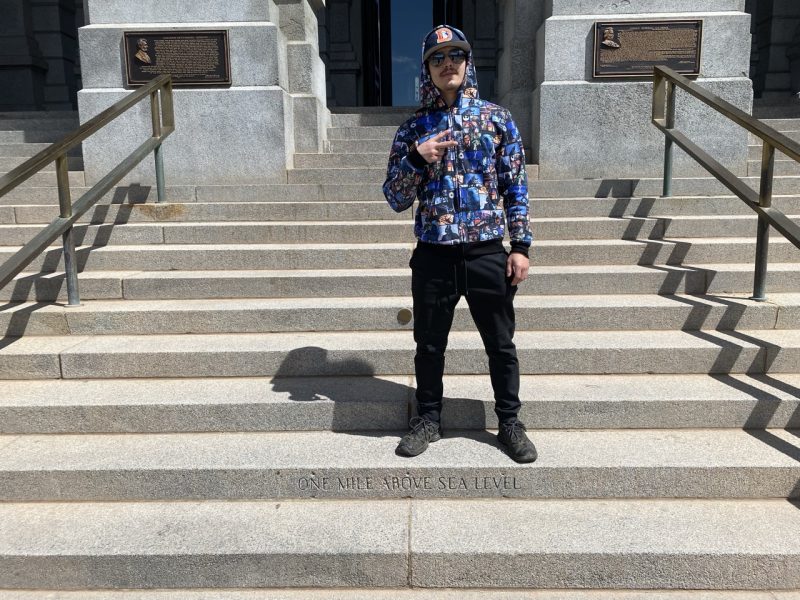In the sun-drenched city of La Junta, Colorado—where Hispanic and white cultures blend in nearly equal measure—a different kind of cultural fusion is taking shape. Matthew Ritter isn’t just making music; he’s rebuilding himself, one bar at a time.
“I still keep spiders and they called me insane, but call me Spider-Man I’m in love with Marry Jane,” Ritter spits with the kind of raw honesty that can’t be manufactured. It’s this authenticity that sets him apart in a genre often criticized for its artifice.
His journey didn’t start with rap. Like many kids, Ritter’s first stage was his living room, where he and his siblings formed an impromptu band for their parents’ entertainment. But while most childhood bands fade with summer vacation, music had already sunk its hooks into young Matthew’s soul.
At 10, he picked up the trumpet, its bright brass notes becoming his first real language of expression. Two years later, the bass guitar found its way into his hands, adding new depths to his musical vocabulary. These weren’t just instruments—they were lifelines in moments when words failed and the world seemed too heavy to bear.
In a town known more for its historic sites and canyonlands than its hip-hop scene, Ritter is carving out his own cultural space. La Junta’s vibrant local music community provides an unexpected backdrop for his evolution from classical instruments to contemporary beats.
But what makes Ritter’s story compelling isn’t just the genre-hopping—it’s the brutal honesty about why he creates. “I think I’ve lost touch of who I am,” he admits, “and I’m using rap as a canvas to piece back my mental state.” In an era where mental health struggles are often hidden behind carefully curated social media posts, Ritter’s transparency is like a breath of fresh desert air.
His debut album, spanning eight tracks, marks just the beginning. With a new album on the horizon and an EP in the works, Ritter isn’t just making music—he’s documenting a transformation. Each track serves as a breadcrumb on the trail back to himself, away from what he calls “societal stigmas as a warm blanket.”
For Ritter, music isn’t just a career choice—it’s an escape route. His dreams of touring aren’t about fame; they’re about freedom. “I don’t wanna be held back,” he says. “I wanna go.” It’s a sentiment that echoes through every beat of his work, from the trumpet’s first notes to his latest bars.
In a world where authenticity often takes a backseat to marketability, Matthew Ritter stands as a reminder that sometimes the most powerful art comes from simply trying to find yourself. His evolution from making music for his parents’ living room to crafting deeply personal rap tracks isn’t just a career trajectory—it’s a map of self-discovery.
As he prepares to release his next project, one thing becomes clear: whether he’s holding a trumpet, strumming a bass, or gripping a microphone, Matthew Ritter isn’t just making music—he’s making himself whole again, one song at a time.


